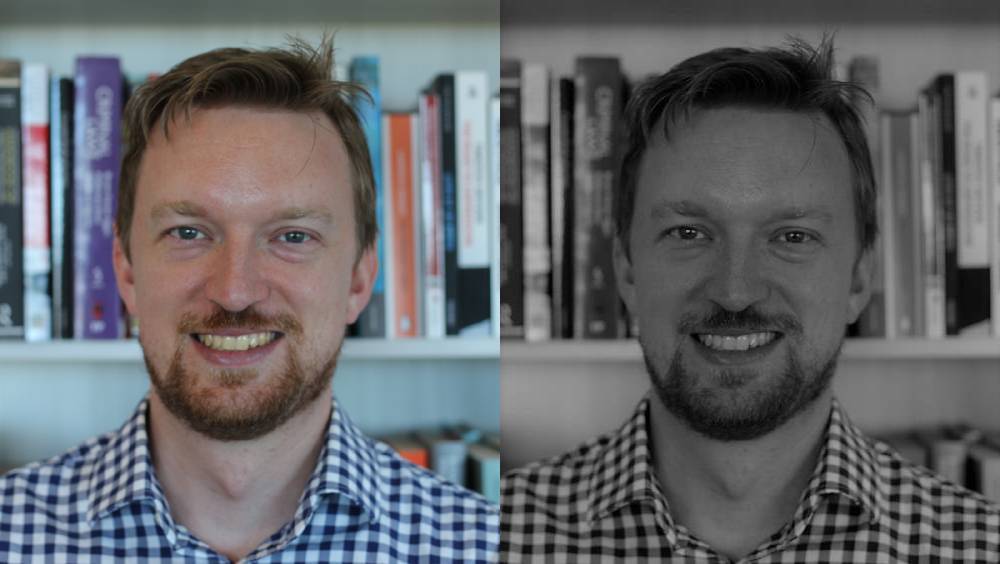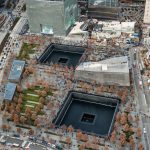A Growing Culture of Secrecy: Dr Keiran Hardy on Australia’s Terror Law Regime

The forcible arrest of Friendlyjordies producer Kristo Langker by the terrorism-related NSW Police Fixated Persons Investigations Unit at the behest of deputy premier John Barilaro over a couple of public pranks on the part of the online political satirist is certainly disturbing, but it’s not isolated.
The arrest comes on the back of Barilaro’s move to sue Langker’s boss, Jordan Shanks, over some tongue-in-cheek critiques of the Nationals leader. And this has echoes of federal Coalition ministers Christian Porter and Peter Dutton recently moving to silence their media critics via defamation suits.
These incidents have occurred against a backdrop, where the CDPP, with federal Coalition approval, is moving to prosecute Bernard Collaery and David McBride for exposing the lies of government, while Witness K was just given a suspended prison sentence for doing the same.
The mid-June 2019 AFP raids also slot in nicely with this series of events, as these actions were taken to punish those who either revealed the crimes of government or sought to expose further moves to enhance the surveillance state, whilst recent draconian terror laws were applied during the raids.
Of epic proportions
Around 90-odd pieces of national security-counterterrorism legislation have been passed in this country since the 2001 New York attacks and 2002 Bali bombings.
As UNSW law professor George Williams has pointed out, the volume of these types of laws passed here has far exceeded those enacted in the US and the UK.
In response to the burgeoning Islamic State, the Abbott government announced a series of three major terrorism bills in 2014. The third of these created a regime that allows ASIO and a number of other agencies to have warrantless access to citizens’ metadata, which is stored for two years.
The TOLA Act slipped through parliament during its final sitting week in 2018. The legislation established a three-tiered system for the government to get around tech companies encrypted messaging systems, which begin with a request, but quickly move to requirements.
And the Australian Security Intelligence Organisation had its questioning regime enhanced via the ASIO Bill 2020, which permitted agents to question children as young as 14, removed the need to obtain an independent warrant to track a target, and broadened its scope beyond counterterrorism.
The creeping surveillance state
The second AFP press raid saw agents descend upon the Sydney offices of the ABC in relation to its publishing of classified ADF information provided by former military lawyer David McBride. The first involved raiding a News Corp journalist over revealing a proposal to turn the ASD on citizens.
The Australian Signals Directorate is one of our nation’s intelligence agencies that spies upon the citizens of other countries. However, according to then home affairs minister Peter Dutton, moves to turn this foreign spying agency on domestic targets was close to finalisation early last year.
Sydney Criminal Lawyers spoke to Griffith University criminology lecturer Dr Keiran Hardy about the secrecy provisions applied to the Witness K and Collaery prosecutions, the uncertainty around the proliferation of terror laws, and his concerns around growing government secrecy.

Firstly, on 18 June, Witness K was given a three month suspended sentence due to his part in exposing information that revealed the Australian government had bugged the cabinet office of the Timor-Leste government in 2004.
In 2018-19, then attorney general Christian Porter invoked the closed court powers contained in section 26 of the National Security Information (Criminal and Civil Proceedings) Act 2004 (Cth) (the NSI Act) in relation to both the K and Collaery cases. This is the first time the laws had been applied.
Keiran, how would you say these orders have been used in these cases? And does it line up with their official aims?
The orders are used to keep the courtroom secret when needed, and their other key power is that information considered national security information, or is sensitive in that way, can be provided in summary or redacted forms.
So, the attorney general’s certificate means that this information can be presented as a written summary or with information deleted. That is how it operates broadly.
In terms of the aims of the law, it does line up with them.
In thinking about why the law was created, it was originally due to the problem that governments and prosecutions had, which was to choose between keeping the information secret and not prosecuting someone or choosing to prosecute and have the information go public.
So, the NSI Act is a “have your cake and eat it too” situation, where they can prosecute people for offences related to secret information, but they can also keep the information secret in the courtroom.
In a 2019 article in the Conversation, you maintained that the application of an NSI order can undermine open justice and more specifically a defence case. Can you elaborate upon why this is so?
Obviously, closing a court means that journalists and members of the public don’t have access to what’s going on in the courtroom.
Having an open court system is a core part of our democracy: people should know what goes on in a courtroom, how judges are interpreting the law, and the findings should be reported.
If we don’t know what happens in a case, that’s a serious problem for our democracy.
It is not completely unknown to the law that there are closed hearings. In the case of young people who have been the victim of sexual abuse, the courtroom can be closed.
Although, it’s not just that the courtroom can be closed at certain points, the bigger issue is that the NSI Act gives greater weight to considerations of national security than to open justice or the right to a fair trial. That’s a big one.
It’s a little hidden in the law, but when a judge is weighing up how this information should be presented it’s a major consideration, and something that really needs to be looked at during any review of this law.
There’s also a problem with information being presented in summary or redacted form. That really undermines the ability of the defence to counter it.
Cross-examination is the ability to poke holes in a statement of evidence, but if the statement of evidence only gives you a summary in dot points and other information is redacted from that, it can be put forward as evidence of the fact that something happened, but the defence then has very limited ability to challenge that or the reliability of the information.
The Timor-Leste bugging operation happened in 2004. K first raised his concerns about it to the Inspector General in 2008.
In 2013, as Timor-Leste was taking the Australian government to the Hague over this matter, K and Collaery were both raided. However, the pair weren’t charged until mid-2018.
Broadly speaking, what are your thoughts on the decision to prosecute K and Collaery, and the manner in which it has been done?
These prosecutions are not in the public interest. What they did was reveal something that was an historical operation, at least in the sense that it happened some 15 years ago now.
As far as we know, this has not led to any endangering of serving intelligence officers by revealing their identities.
It revealed that Australia had access in a disingenuous way to trade negotiations with a foreign country.
That was taken to the international court in the Hague. This was dealt with responsibly. Witness K first went to the Inspector General of Intelligence and Security.
They revealed something that it was in the public interest to know – that the intelligence service undermined the trade negotiations and deprived Timor-Leste of estimated billions of dollars in natural resources that should have belonged to them.
This is the kind of thing where it’s not somebody essentially harming national security. And as you say, the prosecutions were followed much further down the track as to when the information came out, which would tell you that Collaery and Witness K are not a risk to the Australian community.
The prosecution of Collaery should not have gone forward, and nor should the charging of Witness K, which led to a guilty plea.
In early June, the prime minister appeared before the press singing the praises of the transnational drug busts known locally as Operation Ironside.
This investigation utilised the encryption busting laws contained in the 2018 TOLA Act.
The Five Eyes had long had its sights on breaking through the wall of encryption and it seems that these laws enabled not only the AFP, but also the FBI to get around it.
Should Australian citizens be concerned about the laws in the TOLA Act that enable ways to get around encryption?
Yes, they should. What’s also apparent about these laws is this culture of secrecy. We will never really know the details of how these laws are applied. That’s the remit of the Inspector General of Intelligence and Security.
For example, an employee of a tech company revealing information about how these laws are applied would result in gaol time. So, there are real concerns about the secrecy of the regime and also the impact on the privacy of wider groups of Australians.
Technology companies, like Apple and Google, have maintained from the start that it’s not possible to undermine encryption without undermining it for all users.
There was a lot of criticism and backlash against these laws at the time because they were introduced so quickly and without industry consultation.
We don’t know exactly how the laws were used, but we can see a good product of this in curbing criminal activity.
As I understand, it wasn’t so much about breaking encryption, as providing a false app to the criminal world, who then relied on something that they already had access to.
So, this isn’t exactly the case of the government being able to bypass encryption. They may well have used the laws in another way. If more details come out about that, it would be interesting to know just how the laws were used.
The mid-2019 AFP raid on the house of News Corp journalist Annika Smethurst was over the publishing of details involving the defence and home affairs secretaries swapping ideas on turning the Australian Signals Directorate upon the Australian public.
Then home affairs minister Peter Dutton initially denied these allegations, but, by the beginning of last year, he announced that plans to turn the nation’s international spying agency on domestic targets were close to fruition.
What are the implications of permitting the ASD to spy domestically?
It would be a significant change if foreign intelligence collection agencies were allowed to spy on their own citizens.
These distinctions have stood for a long time. The CIA is only allowed to operate on foreign soil. In Australia, ASIS and the ASD – the foreign intelligence collection agencies – operate overseas and can spy on foreign citizens because they have exceptional powers.
Their powers aren’t clearly defined in the law in the same way that ASIO’s powers are.
ASIO operates domestically. It has a range of statutory powers, many of which are controversial, including questioning powers. But at least those powers are written down in the law, and we know what ASIO is able to do.
Part of the problem with the foreign intelligence collection agencies is that they have broad statutory powers to collect intelligence, and the limits on those powers are not so clear.
That’s been seen as acceptable when we’re spying on the citizens of other countries but not when we are spying on Australian citizens.
So, it would be a significant shift for that to happen.
The NSI Act is one amongst 90-odd pieces of legislation that have been passed in the name of national security and counterterrorism since the 9/11 attacks in 2001. Critics have warned that these laws erode the rights of all.
In your opinion, what have the impacts of these laws been?
What we have seen over the time in response to terrorism in Australia is the creation of this huge body of law, with many of the applications being unclear.
A lot of the commentary around these laws often focuses on some of the main powers, like control orders.
But when you consider there have been around 90 laws amounting to nearly 5,000 pages of legislation and rules, many researchers, policy makers and law reform bodies don’t even understand the implications of this, particularly given the secrecy around the regime.
This regime keeps expanding over time. It’s a common occurrence now in the parliament for a new national security law to sail through without a lot of scrutiny.
And the claims to powers are becoming bolder and bolder over time, such as with the proposed powers for the ASD to spy on Australian citizens.
So, there’s a lot of quick passage through parliament, a lot of secrecy around these laws, and a lot of expanding powers over time that are unlikely to be wound back.
And lastly, Keiran, Australians readily think of themselves as living within an open democracy. Indeed, politicians regularly assert this.
However, over recent years, we’ve seen the build-up in counterterrorism laws, the crackdown on press freedoms, as well as the growing practice of prosecuting whistleblowers and critics.
How would you say these recent developments have affected a free and democratic Australia?
There has been a significant shift towards secrecy. Early on, there had been a lot of controversial powers introduced in response to terrorism after 9/11 and the Atlanta bombing, and then Islamic State as well.
What we’ve seen more recently is this trend towards growing secrecy and that’s something Australians should really be concerned about.
We have secret trials and offences that stop people discussing terrorism powers or talking to journalists.
What we see is the pointy end of cases like Witness K and Witness J.
So, this culture of secrecy is also reflected in the record denials of FOI requests and a lack of transparency around other operational matters.
This can even be seen in things like the vaccine rollout and reluctance to release figures of how many vaccines we have and how many vaccinations have been achieved already.
What Australians should be concerned about is not only the ever-growing powers for national security and counterterrorism, but actually how this culture of secrecy is becoming the dominant paradigm of government.
If that doesn’t shift in some way, Australia is really going down a path that it will be difficult to come back from.







